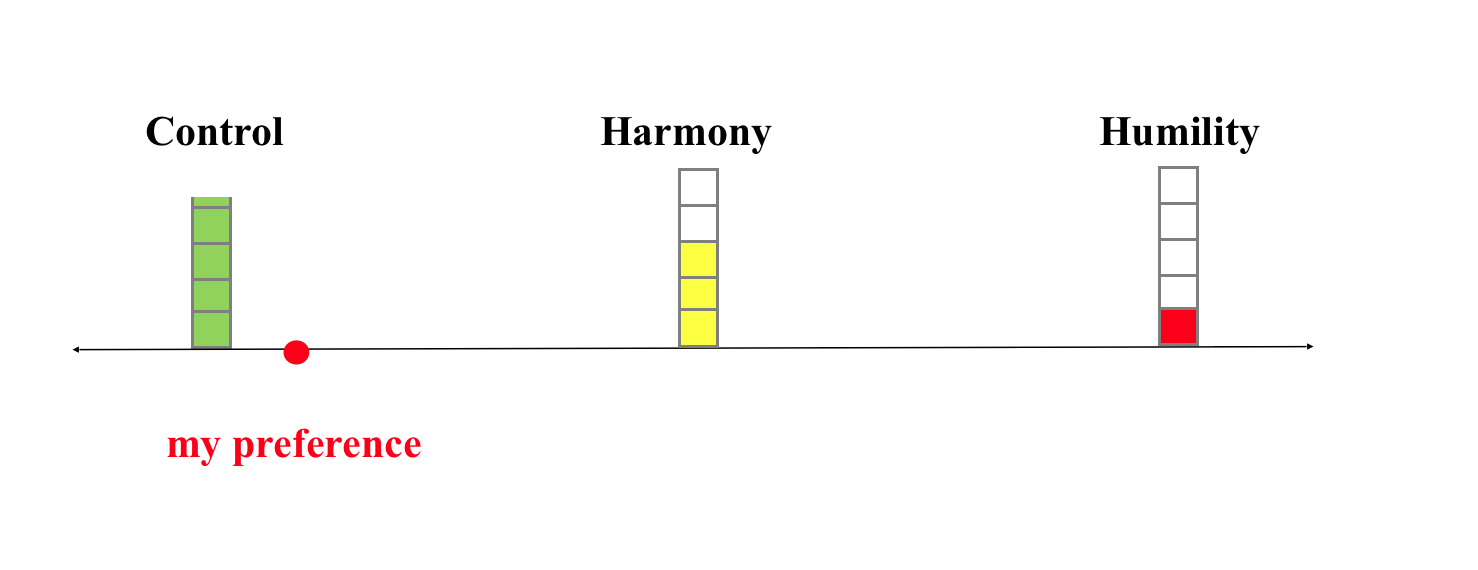Cultural Intelligence
Our work has fundamentally changed since 2016 when we were exposed to Philippe Rosinski’s book Coaching Across Cultures. Through interacting with his work, we were introduced to a new language about culture. The result was a broader and more powerful way of thinking about culture and leadership than we had in the past.
Rosinski defines a group’s culture as “a set of unique characteristics that distinguishes its members from another group.” Culture goes beyond nationality; corporations, organizations, professions, teams, communities, neighborhoods, and families can each have their own culture.
Part of the new language Rosinski introduced to us were the terms “ethnocentric” and “ethnorelative.” Ethnocentric can translate to “my way is the best way because it is my preference.” Usually, this is the easier of the two concepts to understand because of our own implicit biases. Ethnorelative is the opposite of that: “I recognize my preference and the preferences of others in the room and value them both.” The more we converse and practice ethnorelativism, the more we increase our leadership capacity.
We define Cultural Intelligence (CI) as seeing a more expansive view of reality and leveraging that reality the most effective way possible. Similar to Emotional Intelligence (EI), first we need to increase our awareness of cultural preferences from an ethnocentric, narrow focus to an ethnorelative, broad minded view. Secondly, we need to leverage those preferences to best meet the context and unique characteristics of different groups. This involves moving away from binary (either or) thinking and moving towards dialectic (and) thinking. Mastering the use of all the different cultural preferences would be the goal of Cultural Intelligence.
Interculturalists analyze, categorize and divide cultures into different dimensions. One example to consider is one’s view of sense of power. On one end of the spectrum is control, the stereotypical American Dream, where we can achieve anything we set our mind to. On the other end of the spectrum is humility: the realization that we control very little in our lives as symbolized in the Arabic word, inshallah, “if Allah wills it.” In the middle of the two extremes is harmony: the balance of the two.

In this example, we might have a strong preference for control in that we alone govern our own destiny. Yet we might find ourselves in a paralyzing automobile wreck where the other person is at fault. All the vigilance, focus, and sense of control in the world couldn’t prevent that scenario. Now, being humble and accepting life as it comes can help reveal the strength to move forward. Having a sense of harmony would be a third preference to help us balance life’s twists and turns. Dialectically, all three cultural viewpoints are valid and effective at times.
Cultural Intelligence would then look at how well we master using control, harmony, and humility by putting a vertical scale to the dimension. In this example, the leader has a good mastery of control, has a familiarity with harmony, and has an opportunity to work on leveraging humility.
For a broader list of cultural dimensions, scroll down to the chart at the bottom of the article. This list of 17 different dimensions is not exhaustive. We’d like to invite leaders to think about their unique context and create their own dimensions of culture to increase their capacity for Cultural Intelligence.
We’ve experienced several benefits to raising our own Cultural Intelligence:
- We discovered that a broader cultural awareness has changed our language as leaders, making us more accessible to those with different perspectives outside of our own.
- We no longer think in terms of right or wrong, which could disrespect and alienate individuals. As Shakespeare said in Hamlet, “There is nothing either good or bad but thinking makes it so.”
- Life is no longer about selling our beliefs but positioning ourselves to learn and grow from other perspectives which continues to make us stronger leaders.
We recommend taking Philippe Rosinski’s Cultural Orientations Framework (COF) Self-Assessment to discover your own cultural preferences and your mastery of each. Here is a link to take it for free:
http://www.cofassessment.net/participants/index.php
If you are interested in getting certified in offering Philippe Rosinski’s Cultural Orientations Framework (COF) Self-Assessment, please contact us at www.cedgeinc@gmail.com for the next 3 day certification session. ICF credits are available.

Recent Comments